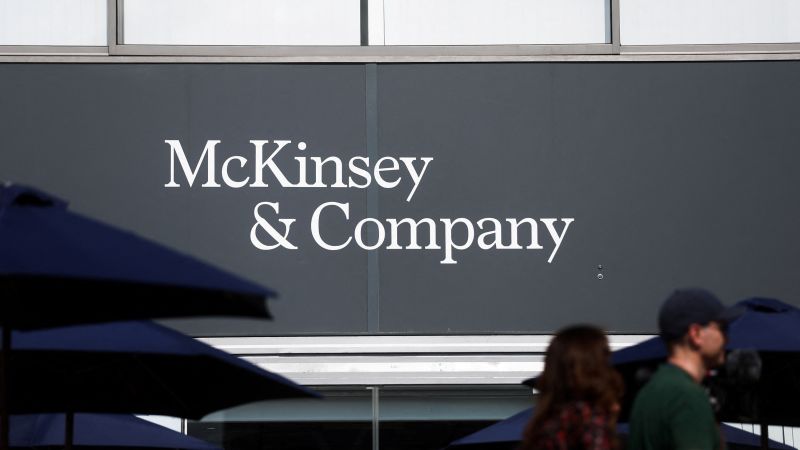The Justice Department is currently investigating McKinsey & Company, a large consulting firm, for their role in advising drug companies on how to increase sales of opioids. The investigation is being led by prosecutors from Virginia and Massachusetts, with coordination from the Justice Department’s civil division in Washington, DC. The focus of the probe is on the advice that McKinsey provided to pharmaceutical companies regarding the sale of highly addictive prescription opioids.
Critics have accused McKinsey of helping opioid manufacturers such as Purdue Pharma, Johnson & Johnson, and Endo to expand their distribution of opioids across the country. McKinsey has already paid substantial settlements for its alleged involvement in the opioid crisis. The Wall Street Journal was the first to report on the criminal inquiry into McKinsey’s activities. The abuse of prescription opioid painkillers has become a major epidemic in the United States, leading to tens of thousands of deaths, according to the Centers for Disease Control and Prevention.
In response to the investigation, McKinsey has stated that they have ceased working with clients on “opioid-specific business” and are focusing on supporting key stakeholders in combating the opioid crisis. The consulting firm has faced criticism and legal action for their alleged role in enabling the spread of opioids and fueling the crisis. The Justice Department has declined to comment on the ongoing investigation into McKinsey’s actions and their impact on the opioid epidemic.
The case against McKinsey highlights the ethical concerns surrounding the consulting industry and its involvement in advising companies on controversial products like opioids. The firm’s reputation has been tarnished by its work with opioid manufacturers and the resulting impact on public health. The investigation into McKinsey’s conduct serves as a warning to consulting firms and other professional services providers about the potential consequences of their actions in advising clients on sensitive and high-risk issues.
The criminal investigation into McKinsey’s involvement in the opioid crisis reflects a growing scrutiny of corporate practices that contribute to public health emergencies. Consulting firms play a significant role in shaping business strategies and decision-making for their clients, and the McKinsey case raises questions about the responsibility of these firms when working with industries that have harmful effects on society. The outcome of the investigation will have implications for how consulting firms approach contentious issues and the potential legal consequences of their advice.
Overall, the Justice Department’s investigation into McKinsey’s role in advising drug companies on opioid sales underscores the complex ethical challenges facing consulting firms in balancing profit-driven business interests with societal well-being. The outcome of the probe will determine the accountability of McKinsey for its actions and the broader implications for the consulting industry’s involvement in controversial industries. The case serves as a cautionary tale for professional services providers about the ethical considerations and legal risks associated with advising clients on products with significant public health consequences.















